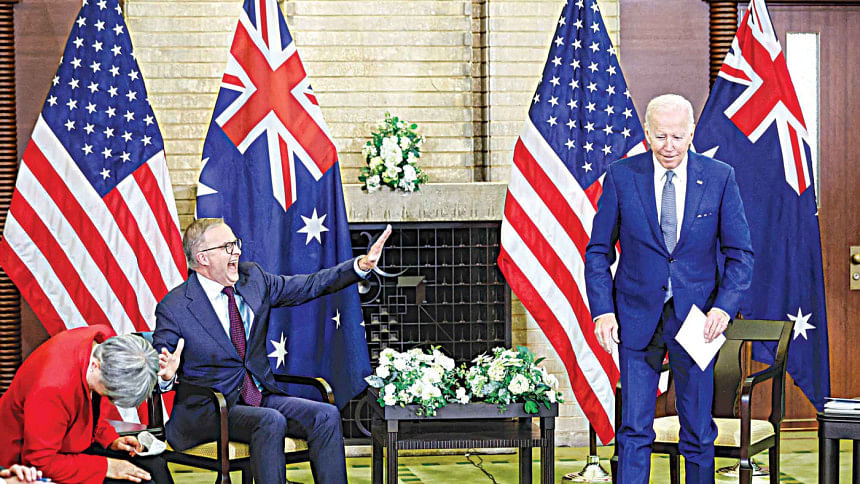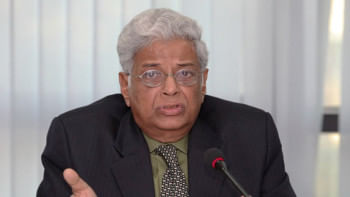Quad opposes ‘change by force’

Chinese, Russian fighter jets carried out joint flights near Japan as the leaders met in Tokyo, Japanese Defence Minister Nobuo Kishi said.
Leaders of Japan, India, Australia and the United States yesterday warned against attempts to "change the status quo by force" as concerns grow about whether China could invade self-ruled Taiwan.
A joint statement by the so-called Quad bloc avoided any direct mention of China's growing military power in the region, but left little doubt about where its concerns lie.
The carefully worded document also made reference to the conflict in Ukraine, but without offering any joint position on the Russian invasion that India has pointedly declined to condemn.
The Quad's other members have been less coy about their view that a strong response to Russia's war is needed, one that would a message that will deter other countries, including China.
"As Russia's invasion of Ukraine is shaking the fundamental principles of the international order... (we) confirmed that unilateral attempts to change the status quo by force will never be tolerated anywhere, particularly in the Indo-Pacific region," Japan's Prime Minister Fumio Kishida said, using another term for the Asia-Pacific.
The group's statement made no mention of Russia, or China, but listed a range of activities that Beijing has regularly been accused of in the region.
"We strongly oppose any coercive, provocative or unilateral actions that seek to change the status quo and increase tensions in the area, such as the militarisation of disputed features, the dangerous use of coast guard vessels and maritime militia and efforts to disrupt other countries' offshore resource exploitation activities," it said.
The four nations unveiled plans to invest at least $50 billion into regional infrastructure projects over the next five years and a maritime monitoring initiative seen as intended to bolster surveillance of Chinese activities.
Meanwhile, Chinese and Russian fighter jets carried out joint flights near Japan yesterday as the leaders met in Tokyo, the Japanese Defence Minister Nobuo Kishi said.

 For all latest news, follow The Daily Star's Google News channel.
For all latest news, follow The Daily Star's Google News channel. 



Comments